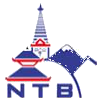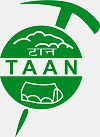- How long does the Langtang Trek take?
Typically 7 to 10 days, depending on the route and pace. -
When is the best time to trek Langtang?
Spring (March–May) and autumn (September–November) offer the best weather and visibility. -
Do I need a permit for the Langtang Trek?
Yes, you'll need a TIMS card and a Langtang National Park Entry Permit. -
Is a guide or porter required?
Not mandatory, but highly recommended for safety, local insight, and carrying your load. -
Is the Langtang Trek difficult?
It’s a moderate trek suitable for beginners with good fitness and acclimatization. -
What is the maximum altitude of the trek?
Around 4,984 meters (Tserko Ri viewpoint) is the highest point. -
Can I do the Langtang Trek solo?
Yes, solo trekking is allowed, but going with a guide is safer and more enriching. -
How do I get to the Langtang trailhead?
A local bus or jeep from Kathmandu to Syabrubesi, the starting point. -
What are the accommodation options like?
Teahouses are available along the trail, offering basic food and lodging. -
Is altitude sickness a concern?
Yes, especially above 3,000 meters. Acclimatization and hydration help prevent it. -
Is there mobile network and Wi-Fi on the trail?
Limited mobile coverage and occasional Wi-Fi are available in some villages. -
Are there ATM facilities on the route?
No. Bring enough cash from Kathmandu for the entire trek. -
What kind of food is available during the trek?
Typical Nepali dishes like dal bhat, noodles, soup, and momos are widely available. -
Is drinking water safe?
Not always. Use purification tablets or buy bottled/boiled water. -
Do I need travel insurance?
Yes, especially one that covers trekking up to 5,000 meters and helicopter evacuation. -
Can I combine Langtang with other treks?
Yes. Many combine it with Gosaikunda or Helambu treks. -
Are there any cultural highlights?
Yes, including Tamang villages, Buddhist monasteries, and traditional lifestyles. -
What gear do I need for the trek?
Warm layers, trekking boots, a sleeping bag, rain gear, and a daypack are essential. -
Is Langtang safe ?
Yes, the area has been rebuilt and is safe for trekking, with restored trails and lodges.
For more detail and itinerary click here







